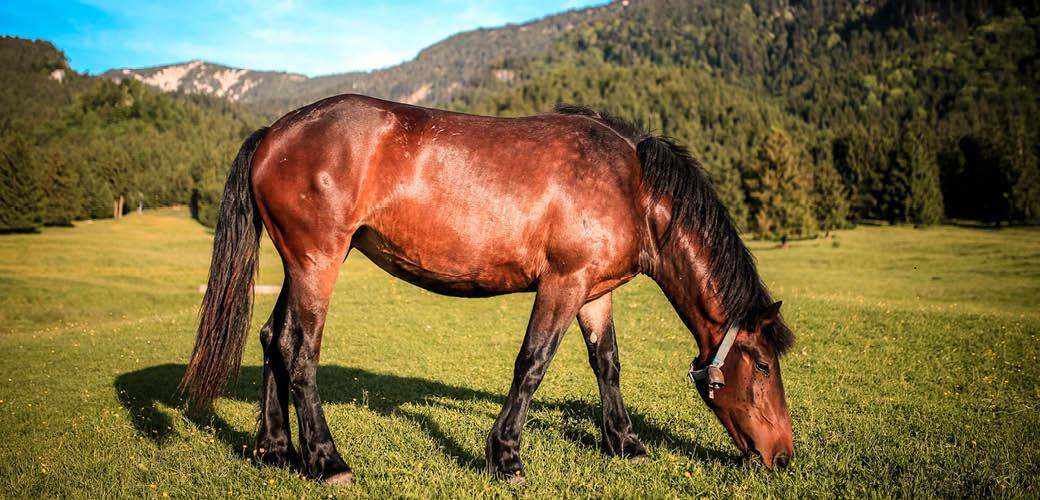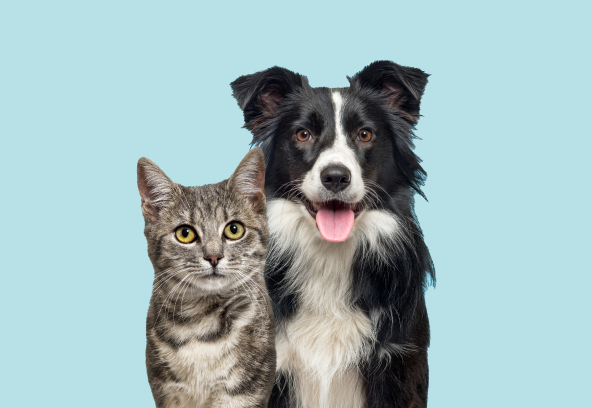
Learn to Recognise Colic in Your Horse

There are many signs and symptoms of colic in your horse, with just as many causes. Learn to recognise colic in your horse to get the best treatment.
As a horse owner, you’ve no doubt heard of colic. It’s a serious condition for a horse that, in severe cases, can lead to death. However, colic is also quite rare, with only 4-10% of horses diagnosed with it each year.
What is colic?
Colic isn’t a disease, rather it’s a range of signs that all are due to abdominal pain. Colic can refer to anything from excess gas in the intestine to impaction, or the rotation of the intestinal tract.
What causes colic?
One of the most common causes of colic is what’s known as spasmodic colic. This is an increase of gas or motility (movement) in the intestine and is often associated with a rapid change in diet.
But this isn’t the only type of colic. Many factors play into the cause including age, diet, how much movement your horse gets, whether they have worms, the health of their teeth, and whether they’ve been recently transported.
What are the symptoms?
Because the causes of colic are so varied, the symptoms your horse may be displaying can be just as diverse. Some of the signs are quite obvious, like rolling, sweating, kicking at their stomach, or pawing the ground, repeatedly looking at their flanks, or diarrhoea. Other symptoms, however, can be a lot more subtle, like your horse appearing sick or ‘dull’, a reduced appetite, increased stretching, or grinding of their teeth.
What should I do if I think my horse has colic?
If you think your horse may have colic, the first thing you should do is call the vet. The sooner your vet can confirm the diagnosis and start treatment, the better chance your horse has of a full recovery. Your vet will be able to diagnose the cause of colic in your horse, and the best treatment.
How is colic treated?
Depending on the underlying cause and severity of the colic, it can be treated in different ways. Spasmodic colic, for example, can be treated with a dose of pain relief. Other treatments can include antispasmodics, electrolytes and fluid therapy, laxatives, or surgery.
In some cases, a vet will try and medically treat the colic but, if the horse doesn’t respond and the colic doesn’t go away, they may have to perform surgery.
Is colic preventable?
While not all cases of colic can be prevented, there are steps you can take to reduce the likelihood of colic in your horse. These include making sure your horse has access to clean water, is able to graze in the paddock, is up to date with worm treatments, gets exercised appropriately, and has their teeth checked and filed frequently.
It’s also a good idea to feed hay or pellets from buckets or mats, rather than directly from the ground, so they don’t inadvertently consume large amounts of sand or soil.
Finally, 90% of cases of colic respond to medical management and 80-90% of those requiring surgical treatment also recover. Knowing what to look out for gives you and your horse the best chance of early diagnosis, treatment, and a full recovery.

